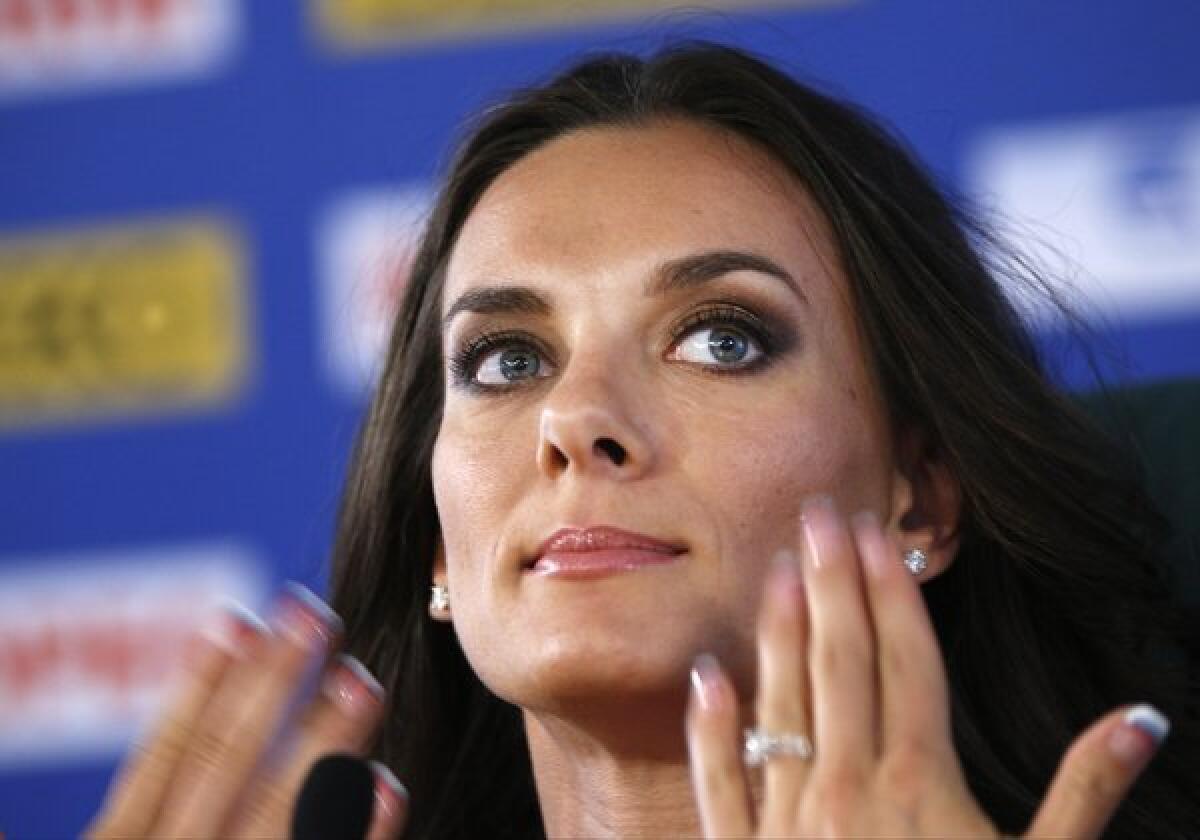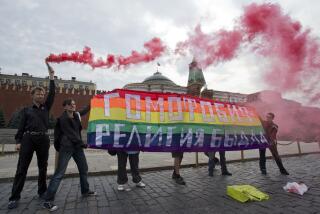Yelena Isinbayeva says she was misunderstood on Russia’s anti-gay law

MOSCOW -- Russian pole vaulter Yelena Isinbayeva says her comments about
protests against recent legislation that criminalizes public displays of support for gays and lesbians in her country were misinterpreted because of her bad English.
Isinbayeva on Thursday criticized other athletes at the track and field world championships in Moscow, where she won a third title, for painting their nails in rainbow colors in support of gays.
“If we allow to promote and do all this stuff on the street, we are very afraid about our nation because we consider ourselves like normal, standard people,’’ Isinbayeva was quoted as saying by the Associated Press. “We just live with boys with woman, woman with boys.
Her comments drew international criticism. British heptathlete Louise Hazel suggested that the International Olympic Committee should review Isinbayeva’s position as an ambassador for the Youth Olympic Games.
“Yelena Isinbayeva’s ‘homophobic’ comments have no place in our sport!” Hazel tweeted. “This is the 21st century!”
In Russia, however, many online commentators expressed support for Isinbayeva, who they said was under “attack.” Mainstream Russian news reports focused on her gold medal and her decision to take a break from athletics to start a family.
“English is not my first language, and I think I may have been misunderstood when I spoke yesterday,” Isinbayeva said in a statement issued Friday by the press office of the local world championships organizers.
“What I wanted to say was that people should follow the laws of other countries to which they come as guests. But let me explain, I respect the views of other athletes. I want to underscore that I am against any discrimination of people based on their sexual orientation.”
The law adopted in June has inspired gay bars around the globe to dump Russian vodka brands. There have also been calls for an international boycott of the 2014 Olympic Winter Games in the Russian Black Sea resort of Sochi.
The head of the International Olympic Committee has asked the Russian government to clarify how the law might affect the Games.
Western leaders have condemned the legislation. But many, including President Obama, have said they oppose a boycott because of the blow that would deal to athletes who have been training for years to compete.
ALSO:
Mexico’s ‘Queen of the Pacific’ heading home, but what’s next?
Egypt protests turn deadly Friday; at least 30 killed, doctors say
New Zealand quake: Homes, bridge damaged, no injuries reported
Isinbayeva is a special correspondent.
More to Read
Sign up for Essential California
The most important California stories and recommendations in your inbox every morning.
You may occasionally receive promotional content from the Los Angeles Times.









